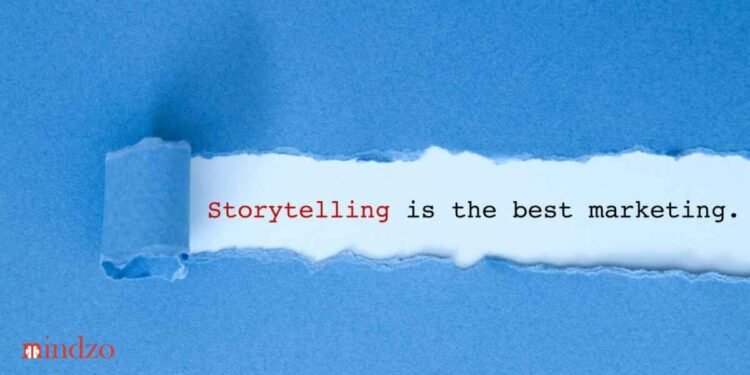The Power of Storytelling in Marketing
Telling a Story That Resonates – The Secret of Marketing Stories have been the foundation of human communication for centuries. From ancient cave paintings to viral social media posts, storytelling is how we share experiences and pass down knowledge. In marketing, a compelling story can set a brand apart, making it memorable and trustworthy.
Why Stories Resonate with Audiences
Humans are wired for stories. Studies show that when we hear a story, our brains release oxytocin, the hormone responsible for empathy and trust. A well-crafted narrative engages emotions and creates a deeper connection between the brand and its audience.
Elements of a Compelling Marketing Story
A strong marketing story includes the following elements:
- A relatable character – The protagonist should represent your target audience.
- Conflict or challenge – Highlight a problem your product or service solves.
- A clear resolution – Show how your brand provides a meaningful solution.
The Role of Emotion in Storytelling
Emotion drives decision-making. Whether it’s excitement, nostalgia, or inspiration, a story that triggers feelings is more likely to be remembered and shared. Brands like Nike and Coca-Cola leverage emotions to make their campaigns unforgettable.
How to Identify Your Brand’s Core Story
To craft a resonant story, ask yourself:
- What is our mission?
- Who are our customers, and what challenges do they face?
- How does our product improve their lives?
By answering these questions, you’ll uncover the essence of your brand’s story.
Real-World Examples of Great Brand Stories
- Apple: Focuses on innovation and challenging the status quo.
- Airbnb: Highlights belonging and real human experiences.
- Dove: Empowers individuals through real beauty campaigns.
These brands use storytelling to create deep emotional connections with their audiences.
Using Storytelling Across Different Marketing Channels
Storytelling can be applied to:
- Social media – Short, engaging content.
- Blogs – In-depth narratives that educate and inspire.
- Advertisements – Compelling video campaigns.
- Email marketing – Personalized stories to nurture leads.
The Hero’s Journey: A Blueprint for Storytelling
Joseph Campbell’s Hero’s Journey provides a roadmap for effective storytelling:
- The Call to Adventure – The protagonist (your customer) faces a problem.
- The Guide Appears – Your brand steps in to help.
- The Transformation – The customer overcomes the challenge with your product.
This structure ensures a gripping and engaging narrative.
Visual Storytelling: More Than Just Words
Images and videos enhance storytelling. Platforms like Instagram and YouTube thrive on visual narratives. A strong visual campaign can make your story more engaging and shareable.
Common Mistakes to Avoid in Storytelling
- Lack of authenticity – Audiences can spot insincerity.
- Overcomplicating the story – Keep it simple and relatable.
- Forgetting the audience – The story should focus on your customers, not just your brand.
How to Make Your Story Authentic and Relatable
To connect with audiences:
- Use real testimonials.
- Share behind-the-scenes moments.
- Focus on human experiences, not just product features.
The Future of Storytelling in Marketing
As technology evolves, so does storytelling. AI, virtual reality, and interactive experiences will shape the future of brand narratives. Staying ahead of trends ensures continued engagement and relevance.
Conclusion
Telling a Story That Resonates – The Secret of Marketing. A compelling narrative creates an emotional bond, making your brand memorable and influential. By mastering storytelling, you can turn customers into loyal advocates.
FAQs
1. Why is storytelling important in marketing?
Storytelling makes brands more relatable, builds trust, and enhances customer engagement, leading to higher conversions.
2. How do I create a compelling brand story?
Focus on authenticity, relatability, and emotional connection. Identify your audience’s pain points and demonstrate how your brand provides solutions.
3. Can storytelling work for small businesses?
Absolutely! Small businesses can use storytelling to establish personal connections and differentiate themselves from larger competitors.
4. What are the best platforms for storytelling in marketing?
Social media, blogs, videos, and email marketing are excellent platforms for storytelling.




















